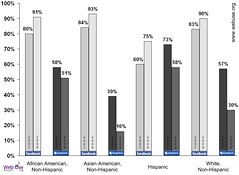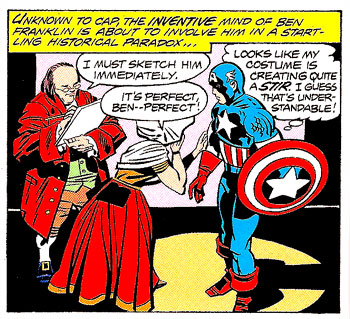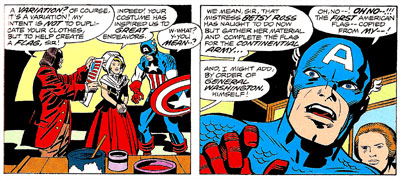That’s “a headline”:http://news.bbc.co.uk/1/hi/uk/8147890.stm at the BBC. So it would seem that they do rather less damage to the UK economy tham the various banking groups that needed rescuing ….
Phew! England (and Wales) “just about got away with it”:http://news.bbc.co.uk/sport1/hi/cricket/england/8146497.stm despite Pietersen’s stupidity and arrogance. The really big difference from 2005 (so far) is the change in feel caused by Warne’s retirement. Four years ago, Warne was a feral presence, spooking the England batsmen with his cunning and aggression. Of course, Ponting was captain back then too, but this series has seen him come to the fore: planning, homework, probing the England weaknesses. Collingwood was terrific today, but, generally England were brainless. Still, no harm done yet and four tests to play to win back the Ashes.
{ 148 comments }
I haven’t blogged much in the last months — I had too much on my plate and blogging is an easy thing to drop if there’s much more work than can be squeezed into 24 hours a day. A few times something came on my path that I felt I had to blog about, and now, in this academic-off-season with more time (or rather: fewer urgent deadlines) the challenge will be to remember all those things that I felt were worthwhile throwing into the Blogosphere.
Here’s one. A few weeks back I joined “the Friends of the Stanford Encyclopedia of Philosophy”:https://leibniz.stanford.edu/friends/ (SEP). For philosophers, but also for other academics or thinkers/writers/readers who sometimes want to check out a philosophical theory, term, subfield or canonical thinker, this is a true gift. I use it in my teaching and have so far only had positive remarks from students. The SEP contains high quality refereed entries, generally well-written and enlightening, and always freely available to anybody on Earth with access to the internet. Anybody supporting the Open Access movement, or anybody seriously concerned about educational equality of opportunity on a global level, should therefore support the SEP if they can (the membership fees are $5 for students and $10 or 25 for professionals – much less than the fees of most academic associations). So now there is an easy way to support the SEP, and you’ll get something in return for your membership – nicely formatted PDFs of the entries. I hope many thousands worldwide will join, and that the people working hard at creating and maintaining the SEP will take it as a big ‘thank you’ for their work.
{ 21 comments }
We’ll soon be having a Crooked Timber seminar on George Scialabba’s wonderful book, “What Are Intellectuals Good For?” (“Powells”:http://www.powells.com/s?kw=Scialabba%20intellectuals%20good%20for&PID=29956, “Amazon”:http://www.amazon.com/gp/product/0978515668?ie=UTF8&tag=henryfarrell-20&linkCode=xm2&camp=1789&creativeASIN=0978515668). I really commend this book to CT readers – if you like the kinds of things that we talk about, you will almost certainly like this book. And if you read it, you will be You can also hear George “in conversation”:http://www.radioopensource.org/george-scialabba-the-untethered-untenured-mind/ on Chris Lydon’s Radio Open Source – his ability to speak in clear, beautifully articulated paragraphs is both frightening and awe-inspiring to the likes of myself (whose ability to respond to questions on the fly is … not quite as impressive).
{ 12 comments }
My Icerocket self-search (admit it, we all do it), led me to this marvellous project. The Invisible Library is a collection of books that don’t exist, except in the pages of other books. It is physically manifesting at the Tenderpixel Library in London, but will resume invisibility after 12 July.
The connection?
{ 59 comments }
Two years ago, as part of a collection of articles researching social network site uses, I published a piece (blog post here) about the different predictors of Facebook and MySpace use among a diverse group of first-year college students. Some of the reactions to that paper suggested that the the differences by race/ethnicity and socioeconomic status identified in the data were only temporary and would soon change.
 I now have some new data to consider possible changes over the past two years. I haven’t written this up in any formal way yet (nor do I have more elaborate statistical analyses to share right now), but I do have some figures suggesting that the differences I identified two years ago persist today.
I now have some new data to consider possible changes over the past two years. I haven’t written this up in any formal way yet (nor do I have more elaborate statistical analyses to share right now), but I do have some figures suggesting that the differences I identified two years ago persist today.
Note that this is a new cohort of first-year students (i.e., not the same students resurveyed two years later) at the same universitywhere I conducted the study in 2007. (See details about the data collection and sample descriptives at the end of this post.)
 There are two main findings here. (Click on the images for larger versions or see the table below.) First, there is a general increase in use of Facebook and a general decline in use of MySpace across the board. In 2007, 79% of the study participants were using Facebook while in 2009, 87% of the sample reports doing so. In contrast, while in 2007, 55% of the group reported using MySpace, in 2009, only 36% do so. [click to continue…]
There are two main findings here. (Click on the images for larger versions or see the table below.) First, there is a general increase in use of Facebook and a general decline in use of MySpace across the board. In 2007, 79% of the study participants were using Facebook while in 2009, 87% of the sample reports doing so. In contrast, while in 2007, 55% of the group reported using MySpace, in 2009, only 36% do so. [click to continue…]
{ 31 comments }
It sounds as though the putative efforts to remove Mary Dietz as editor have failed, and Sage has backed down. “Inside Higher Ed”:http://www.insidehighered.com/news/2009/07/07/sage has the details (along with some discussion of the comment thread on this blog, and the recent decision of the American Sociological Association to farm out its journals to Sage.
At the same time Sage was landing a prestigious batch of journals, it was trying to reassure political scientists who have been trying to figure out what was going on with the leadership of _Political Theory,_ a key journal in the discipline and one published by Sage. … unconfirmed reports … coup … While Sage officials insist nothing of the kind happened, and the original editor is in place, another political scientist has confirmed that he was offered and accepted the editorship, then withdrew when he learned of the controversy. While Sage officials will acknowledge only some sort of “misunderstanding,” they admit that whatever it was they were were trying to do was done without consulting the scholars on the editorial board of the journal, and they are apologizing for that. …
Jayne Marks, vice president and editorial director of Sage, said in an interview that there had been “a misunderstanding,” but that Dietz had never stopped being editor of the journal. … declined repeatedly to explain what took place, or to acknowledge that anything had happened. … Asked explicitly about how another political scientist said he signed a contract for an editorship that wasn’t apparently open, and that many political scientists were expressing concern about the lack of information, Marks repeated that everything has been “sorted out” and that she wouldn’t say more.
{ 7 comments }
Daniel Davies will be moderating a salon with George Soros at “FireDogLake’s Book Salon”:http://firedoglake.com/booksalon/ tomorrow – should be fun …
{ 8 comments }
I’m still writing a long, substantive-ish piece responding to Larry Lessig’s “twin”:http://lessig.org/blog/2009/05/et_tu_kk_aka_no_kevin_this_is.html “posts”:http://lessig.org/blog/2009/05/on_socialism_round_ii.html on the dangers of confusing socialism with collaborative stuff on the internet, but it may be no harm to try to expel the less substantive stuff from my system in the meantime. And I do have some stuff to get out. I usually like Lessig’s stuff, even when I don’t agree with it, but these two posts are a horrible, _horrible_ mess.
Post the first:
It is completely unreasonable to call [Kevin Kelly’s argument] “socialism” — at least when the behavior described is purely voluntary. It’s like saying “Because Stalin set up a competition between different collective farms, it’s not unreasonable to call that free market capitalism.” … The thing that Smith was pointing to (and Hayek too), is not “socialism.” It is not reasonably called socialism. Because “socialism” is the thing Smith was attacking in the 6th edition of his Theory of Moral Sentiments. Socialism is using the power of the state to force a result that otherwise would not have been chosen voluntarily by the people. … Coercive government action is — IMHO — a necessary condition of something being “socialism.” It isn’t sufficient — there is plenty of coercive governmental action that doesn’t qualify as socialism, like raising taxes to fund national defense, or to pay the police. … I’m not an opponent to all things plausibly called “socialist” … A graduated income tax could properly be called “socialist,” because it is coerced … But all of the examples of proper “socialism” begin with pointing to coercion by the state. A conservative Baptist church is not “socialist” when it voluntarily collects money to give to the poor, even though the result is similar to the result of a “socialist” plan to redistribute money from the rich to the poor. … sloppiness here has serious political consequences. When a founder of the movement which we all now celebrate calls this movement “socialist,” that plays right in the hand of those would attack everything this movement has built. Again, see Helprin. Or Andrew Keen.
Post the second:
There’s an interesting resistance (see the comments) to my resistance to Kevin Kelly’s description of (what others call) Web 2.0 as “socialism.” That resistance (to my resistance) convinces me my point hasn’t been made. … It is not even that never in the history of “socialism” have people so understood it (there have of course been plenty of voluntary communities that have called themselves “socialist”). Instead, my argument against Kelly was about responsibility in language: How would the words, or label, he used be understood. Not after, as I said, reading “a 3,500 word essay that redefines the term.” Rather, how would it be understood by a culture that increasingly has the attention span of 140 characters? … In reading the reactions to my argument, however, I realize that in using the term “coercion” I was committing the same error that I was accusing Kelly of making. People associate the word “coercion” with Abu Ghraib or Stalin. And certainly, the “coercion” of socialism isn’t necessarily (or even often) that. That’s fair. By “coercion” I meant simply law — that “socialism” is a system enforced by law, and enforced contrary to the way individuals would freely choose autonomously to associate. … So I didn’t mean anything necessarily negative by the term “coercion.” … Again, if you doubt that, think about American critics of “socialism”: None of them are complaining about people voluntarily choosing to associate however they choose to associate (except of course if they are gay). They are complaining about people being forced to associate in ways they don’t choose to associate.
{ 72 comments }
The assumption about universal Internet access among Americans likely left some of the most enthusiastic Michael Jackson fans without the opportunity to enter the lottery for tickets to the memorial services being held today in Los Angeles. Registering for the lottery could only be done online and many millions of Americans don’t have Internet access in their homes. Worse yet, because registration was confined to the dates of July 3rd and July 4th, most public access points would have been inaccessible due to holiday closings at public libraries and other locations. Adding insult to injury, these constraints of online access are very much unequally distributed among the population leaving certain types of people – for example, African Americans – much less likely to have had the opportunity to enter the drawing.
Talking about the digital divide – or the differences between the technological haves and have-nots – is passé conjuring up seemingly outdated debates of the 1990s. Nonetheless, the fact remains that a big portion of Americans continues to live without Internet access at home or often without any Internet use anywhere. According to the
latest figures (2007) from the Census Bureau’s Current Population Survey, over 38% of American households report no home Internet use. Broken down by race and ethnicity, close to 55% of African American households and over 56% of Hispanic households do not report home Internet usage. The Pew Internet & American Life Project has more
recent figures confirming that large numbers of Americans continue to be disconnected with Blacks and Hispanics less likely to be online than Whites and Asian Americans. [click to continue…]
{ 96 comments }
Blogs kill books. At least, that’s what I always thought. Between 1988 and 2000, I wrote four1 books and edited a couple of volumes. In 2002, I started blogging, and I haven’t done a book since then.
But, in the mysterious way of things, it turns out that blogs generate books, or at least book contracts. In comments here not long ago, Miracle Max wrote
The discredited ideas theme really needs a book, and JQ appears to be the ideal person to write it.
I will even contribute the title: “Dead Ideas from New Economists.” No charge.
Brad DeLong picked it up, and a couple of days later I got an email from Seth Ditchik at Princeton University Press suggesting that it really would be a good idea. Now, we have a contract, and we’re going to use Max’s suggested title.
{ 23 comments }
“Loudon Wainwright III”:http://www.youtube.com/watch?v=AK3-HAdUJx0 on Paul Krugman.
{ 4 comments }
Have you seen this yet? Terrible yellow eyes. It’s an art project with various folks contributing Where The Wild Things Are -inspired works. It’s a lot of fun. This one, for example, by Alina Chau (whose blog is here):

I think this one might be my favorite, however. (By Adam Volker.) Which do you like best?
{ 3 comments }
Happy 4th of July! Since I’ve been pondering creative rights and copyright extension, I’ll take this patriotic occasion to remind you of that famous scene in Captain America’s Bicentennial Battles in which Cap travels back in time only to have the design for his uniform become the original inspiration for the US flag. Cap is upset. Why should Betsy Ross get credit, after all? A creative continuum conundrum. (via Bully.)




A different ethics/etiquette question. My Plato book will be out in paper form in a month or so. When I made the deal with my publisher to let the e-stuff go free (which might reasonably be deemed a serious drag on the paper market) I promised to take it upon myself to work the e-angle fairly aggressively, marketing-wise. And now I ask myself: where do I draw the line between marketing and spamming? Normally I wouldn’t even consider sending an email to 200+ people I don’t know. That’s spam. But sending a bunch of philosophers I don’t know a short email telling them, simply, that there’s an Intro Plato text available free – just click – isn’t so obnoxious. Is it? Spamming means: not giving a damn that you are putting a huge number of people to the mild inconvenience of deleting something they don’t want. Maybe we need a theory of ‘just marketing’, on the lines of ‘just war’: it’s ok to send a mass email so long as you have taken reasonable precautions to exclude those with non-consumer status from the target zone. But that’s a bit vague. Suppose you were in my position. I’ve committed to being an aggressive e-marketer, which of course is in my own self-interest as well: how can I wage an aggressive but just e-marketing campaign?
{ 34 comments }
A couple of weeks ago, I gave a public lecture in Bristol on the subject of Jean-Jacques Rousseau and his continued relevance to modern society and political philosophy. Undoubtedly mileages will vary on that question, but anyone who wants to hear my take on it can “listen to a podcast”:http://www.bris.ac.uk/philosophy/podcasts_html/WhyRousseauMatters.mp3 . (The lecture is included as part of the “Philosophy at Bristol” series which you can access “via its blog”:http://eis.bris.ac.uk/~plajb/blog/ or at “iTunes”:itpc://eis.bris.ac.uk/~plajb/blog/atom.xml .)
{ 4 comments }